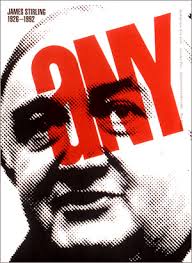any
英 [ˈen.i]
美 [ˈen.i]
- adj. 任何的;所有的;丝毫
- pron. 任何;任何一个;若干
- adv. 稍微;少许
- n. (Any)人名;(法、罗)阿尼
使用频率:

记忆方法
记忆“any”可以通过联想它的字母形状来辅助记忆。可以将“any”的字母想象成一个人的形状,人字旁的“大”代表“任何”的意思,即这个“人”可以代表任何一个人或事物。这样的视觉联想有助于快速记忆。
以上内容由AI生成, 仅供参考和借鉴
中文词源
any 任意的
an, 一。-y, 形容词后缀。
英语词源
- any
-
any: [OE] Any is descended from a prehistoric Germanic compound meaning literally ‘one-y’ (a formation duplicated in unique, whose Latin source ūnicus was compounded of ūnus ‘one’ and the adjective suffix -icus). Germanic *ainigaz was formed from *ain- (source of English one) and the stem *-ig-, from which the English adjective suffix -y is ultimately derived. In Old English this had become ǣnig, which diversified in Middle English to any and eny; modern English any preserves the spelling of the former and the pronunciation of the latter.
=> one - any (adj.)
- Old English ænig "any, anyone," literally "one-y," from Proto-Germanic *ainagas (cognates: Old Saxon enig, Old Norse einigr, Old Frisian enich, Dutch enig, German einig), from PIE *oi-no- "one, unique" (see one). The -y may have diminutive force here.
Emphatic form any old ______ (British variant: any bloody ______) is recorded from 1896. At any rate is recorded from 1847. Among the large family of compounds beginning with any-, anykyn "any kind" (c. 1300) did not survive, and Anywhen (1831) is rarely used, but OED calls it "common in Southern [British] dialects."
权威例句
- 1. I don't want any more of that heavy stuff.
- 我再也不想碰那种麻烦事了。
- 2. Well, at any rate, let me thank you for all you did.
- 好吧,不管怎样,还是要感谢你所做的一切。
- 3. You are welcome to visit the hospital at any time.
- 你可以随时来医院。
- 4. The room was quiet; no one volunteered any further information.
- 房间很安静,无人主动提供更多的信息。
- 5. Wash your hands thoroughly with hot soapy water before handling any food.
- 在拿吃的之前,用热肥皂水把手好好地洗干净。